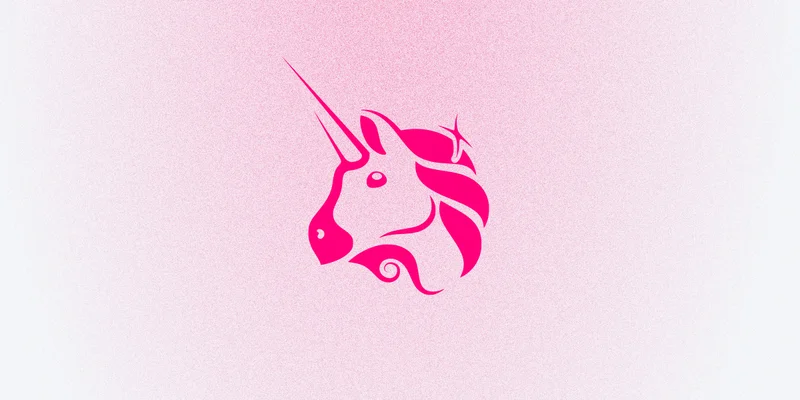Article Directory
I’ve seen a lot of governance proposals in my time. Most are tweaks—a parameter change here, a grant approval there. They are the necessary, but often mundane, acts of maintaining a piece of software. But every once in a while, a document comes along that isn't about maintenance. It’s a manifesto. A declaration of independence. A constitutional convention for a new kind of digital nation.
That’s what we’re looking at with Uniswap’s “UNIfication” proposal.
This isn’t just an update; it’s a fundamental reinvention, a Uniswap Proposes Sweeping ‘UNIfication’ With UNI Burn and Protocol Fee Overhaul. When I first read through the details, I honestly just sat back in my chair, speechless. This is the kind of breakthrough that reminds me why I got into this field in the first place. We’re witnessing one of the most important protocols in decentralized finance propose a shift from being a mere utility to becoming a cohesive, self-sustaining economic engine. This is the moment a brilliant piece of code starts to look and act like a living institution.
Rewriting the Economic Code
Let’s be clear about what’s on the table. Uniswap Labs and the Uniswap Foundation, the two central pillars of the ecosystem, are proposing to merge their efforts and, more importantly, to rewrite the protocol's entire economic DNA. The core of this is activating protocol fees and using them to buy back and burn UNI tokens.
Think of it like this: for years, Uniswap has been like a bustling public square where immense value is exchanged, but the square itself never collected a cent for its upkeep or improvement. Now, the proposal is to install a tiny, almost invisible tollbooth. A fraction of the fees from every trade, from the new Unichain, and even from complex trading strategies will flow back into a central treasury, not to enrich a company, but to systematically reduce the supply of UNI tokens. This makes the entire system deflationary. It directly ties the value of the UNI token to the activity of the protocol it governs.
They're even proposing to internalize MEV—in simpler terms, they’re aiming to capture the extra profit that sophisticated bots usually skim off the top of transactions and redirect that value back into the ecosystem's health. This isn't just a fee switch; it's a complete reimagining of value flow. It’s like a young nation-state deciding, all at once, to establish a central bank, implement a monetary policy, and tie its currency directly to its GDP.

The proposal even includes a retroactive burn of 100 million UNI, a symbolic gesture to account for the value that could have been captured since day one. This whole plan represents a complete philosophical shift from a set of disconnected products to a single, integrated growth machine where every part, from the core code to the user wallet, is designed to funnel value back to the UNI token holders—it’s a self-reinforcing loop of incredible potential. The question this forces us to ask is profound: if a protocol can rewrite its own economic policy so fundamentally, where does the line between software and a self-governing state begin to blur?
A Unified Front for a Decentralized Future
But the economic changes are only half the story. The other, equally seismic shift is organizational. Uniswap Labs, the primary development company, is set to merge its ecosystem teams into the Foundation. The co-founders will form a new five-member board to oversee this unified structure.
This is the political side of the constitutional convention. It’s an end to the sometimes-fractured identity of a project pulled between a for-profit company and a non-profit foundation. Instead, we get a single entity with a crystal-clear mandate: protocol growth.
And how are they proving this commitment? In the boldest move of all, Uniswap Labs plans to pivot away from monetizing its own products. The fees on the Uniswap interface, the wallet, the APIs—all set to zero. Think about that. In a world where every tech company is trying to squeeze every last drop of revenue from its users, Uniswap is proposing to do the opposite. They’re making their front door completely free to use, confident that by doing so, they’ll drive so much volume and activity to the underlying protocol that the whole ecosystem will benefit far more. It’s a breathtakingly long-term vision.
This isn't just about removing friction; it's a statement of purpose. It says that the value isn't in the window dressing; it's in the core infrastructure. To fund this vision, they're proposing an annual growth budget of 20 million UNI, a war chest to fuel development, research, and expansion. What does this level of coordination and long-term planning signal to the outside world? Does it make Uniswap look less like a chaotic crypto experiment and more like a formidable, next-generation financial institution?
The Protocol Becomes the State
Let’s step back and see the big picture here. This proposal, if it passes, is more than just good news for UNI holders. It’s a blueprint. It's a coming-of-age story for decentralized governance. We are watching a protocol consciously evolve from a piece of public infrastructure into a sovereign economic entity with its own monetary policy, its own unified leadership, and its own treasury to fund its future. It’s shedding its adolescent skin and stepping into its role as a foundational piece of global financial infrastructure. This is the model for how decentralized networks can organize, govern, and thrive for decades to come. The future isn't just about writing clever code; it's about building sustainable, self-reliant digital nations. And we’re looking at the draft of their constitution right now.
